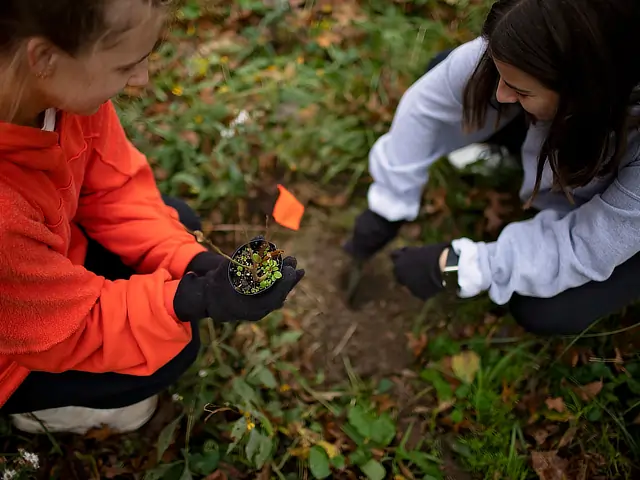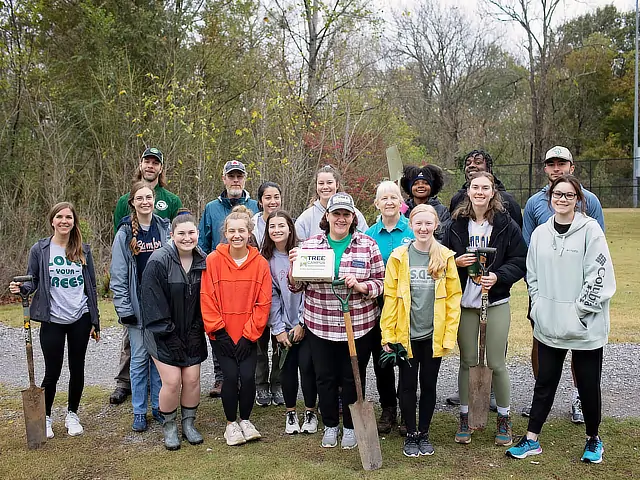
When it comes to sustainability, Samford University is branching out.
On Saturday, Nov. 12, Samford students, faculty and staff participated in the eighth annual Green Skies Native Tree Planting, during which 200 native tree seedlings were planted along the Shades Creek Greenway in Homewood.
The planting is a collaborative effort organized by Samford’s Office of Sustainability, which is housed in the School of Public Health, and the Homewood Environmental Commission (HEC). Nearly 100 participants attended, and not just from Samford. Community members and representatives from such environmental organizations as the Birmingham Botanical Gardens, Friends of Shades Creek, the Cahaba River Society and the Alabama Forestry Commission also participated.
According to Anita Morgan, Samford sustainability coordinator and HEC member, the Green Skies initiative is a long-term community effort to rebuild Homewood’s tree canopy. This year, volunteers planted locally sourced native riparian tree seedlings in a concentrated area along the greenway to help control streambank erosion.
 The effort also boosted the area’s tree diversity, adding American hornbeam, black tupelo, white oak, cherrybark oak, black walnut and other native species to the forest.
The effort also boosted the area’s tree diversity, adding American hornbeam, black tupelo, white oak, cherrybark oak, black walnut and other native species to the forest.
“Samford students want to make the earth a healthier and better place to live, and we are here to help them through encouragement and communication,” Morgan said. “We can do this by developing and implementing sustainable policies, practices and programs for the Samford campus community. These can positively influence how students learn, while at the same time decreasing any negative effects on the environment.”
For instance, Morgan said many Samford students frequent the water filling stations found around campus, foregoing disposable plastic bottles—80% of which end up landfills—for their own reusable water bottles.
“Part of what the School of Public Health does is educate about best health care practices,” Morgan said. “This event is intended to be an educational experience for students in which they learn about the health benefits of planting these trees and serving the community. It also promotes physical activity, socialization and a shared sense of community, all of which can enhance mental wellbeing.”
In terms of environmental wellbeing, Samford is well rooted in sustainability. During the event, the university was named 2021 Tree Campus Higher Education by the Arbor Day Foundation for the third consecutive year—one of only 12 schools in Alabama to receive the designation.
According to the Arbor Day Foundation, the program honors colleges and universities for effective campus forest management and for engaging students and staff in conservation goals.
Learn more about sustainability at Samford.
